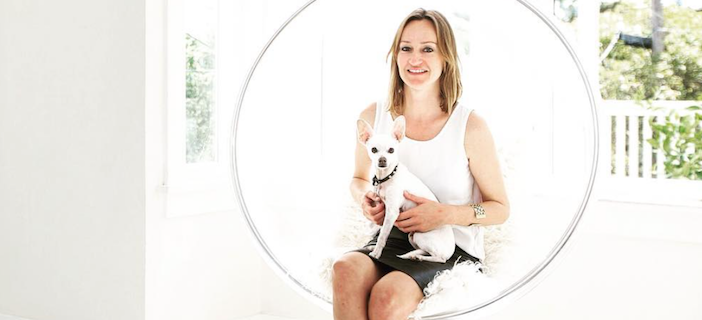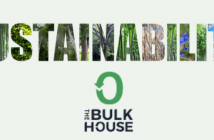Reducing, reusing, and recycling doesn’t haven’t to be a chore. Carrie Yu (余元) is working to make that process fun and a regular part of Beijingers’ regular routines via The Bulk House, which she founded as China’s first social enterprise to focus on zero waste initiatives.
The zero waste movement, a blossoming worldwide conservation project, is largely attributed to the work of Bea Johnson, who hails from France but lives in California. Johnson became a household name (among environmentally conscious circles at least) by devising a way for her family to produce less than a jar of waste per year, backed up with useful recycling tips on her blog Zero Waste Home, and then through guest spots on outlets as large as the BBC and CNN, teaching others how to live an equally minimalist lifestyle.
Johnson is currently touring Asia and Yu has arranged a stop for her to host a discussion and field questions at Beijing’s Day Day Up space in Sanlitun Soho on Dec 21. Below, Yu tells us more about her role in bringing the zero waste movement to Beijing.
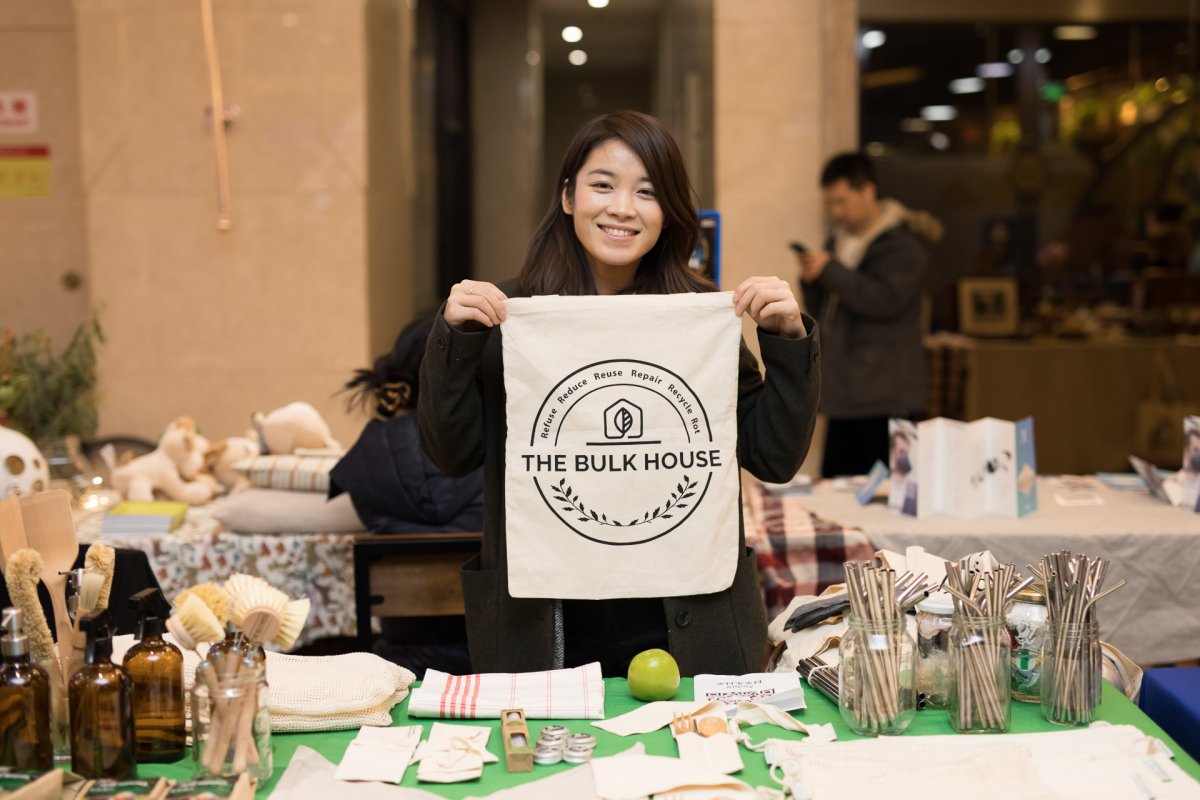
Yu sells her environmentally friendly wares at the Farm to Neighbors markets and other events
How did you got involved in conservation?
It began when I was moving apartments, and I realized my room was packed with stuff I never used and didn’t need. I didn’t want to drag all this to my next place, so I boxed up a load of stuff and gave them away to people who needed it. When I realized that I felt more relaxed with fewer things, I thought: “Perhaps I will feel even better if I get rid of more stuff,” so I continued to declutter.
I read about minimalism and found out about Bea’s Zero Waste movement, and how her family of four only produce one jar of trash per year. That, along with seeing trash on the streets, in rivers, and on mountains, made me want to follow in Bea’s footsteps and reduce my own waste. I thought China really needs this, and more people would like to hear about it. So, all these dots joined up and I decided to take the biggest leap of my life: I quit my job and started The Bulk House, China’s first social enterprise to focus on zero waste!
What has it been like to promote these endeavors in China?
Really great! After starting Bulk House I quickly found out that people don’t want to create trash, but right now it is more convenient to do so.
I receive emails, WeChat messages, and phone calls from people, organizations, and companies every day wanting to hear more and to get involved in the zero waste movement. The turnout at our events has also been great and we have promoted zero waste through composting talks and presentations, our Reduce to Relive event, workshops, and talks about the six R’s in our logo.
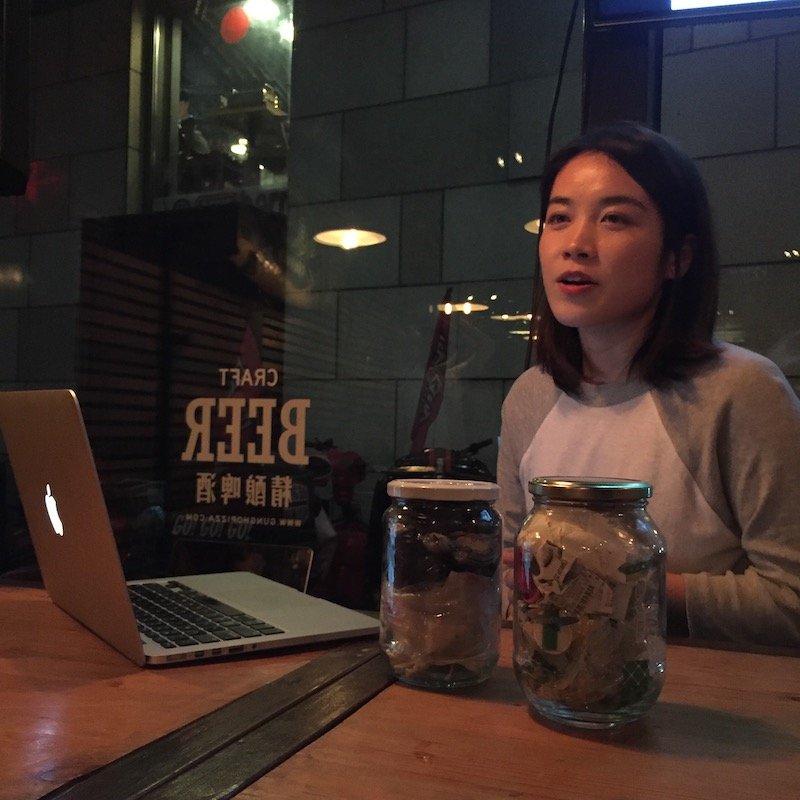
Like Zero Waste movement founder Bea Johnson, Yu works to help Beijingers reduce their waste down to a jar a year
What are the six R’s?
Refuse, Reduce, Reuse, Repair, Recycle, and Rot. And you need to follow them in that order! Here’s how they break down:
1. Refuse items that will ultimately end up in landfills, incinerators, or oceans. We spend a lot of time at our events telling people how to cut back on trash and how to refuse it.
2. Reduce. We have an event called Reduce to Relive. In a nutshell, the event sets up a space for the day where you can “reduce” the things you no longer use or need, and allow them to “relive” in someone else’s life. We’ve held this event six times so far.
But, there’s more! You can join the Reduce to Relive community at any time by joining our WeChat community (ID: TheBulkHouse_China). In this community everything is free! What’s more, we also lend things out, because then there is no need for every home in Beijing to own things like toolboxes, paint brushes, tents, drills, or even ovens and suitcases. Many people that have these things in their home only use them a few times each year. If we can keep building a community where we lend things to each other we will have much less pollution and waste in our cities.
3. Reuse our small range of zero-waste products. These include stainless steel straws, which are straws that last a lifetime. We also have organic cotton produce bags, because the difference you make to the environment between using organic cotton versus normal cotton is unbelievable. And then there’s our dish brush with fully compostable and replaceable heads and a number of other great products.
We already think our products are pretty great, but we will keep working to make them better and better each year. We want to make them even more sustainably sourced, fairer trade, with little or no packaging, and also ensure they are of higher quality and are longer lasting.
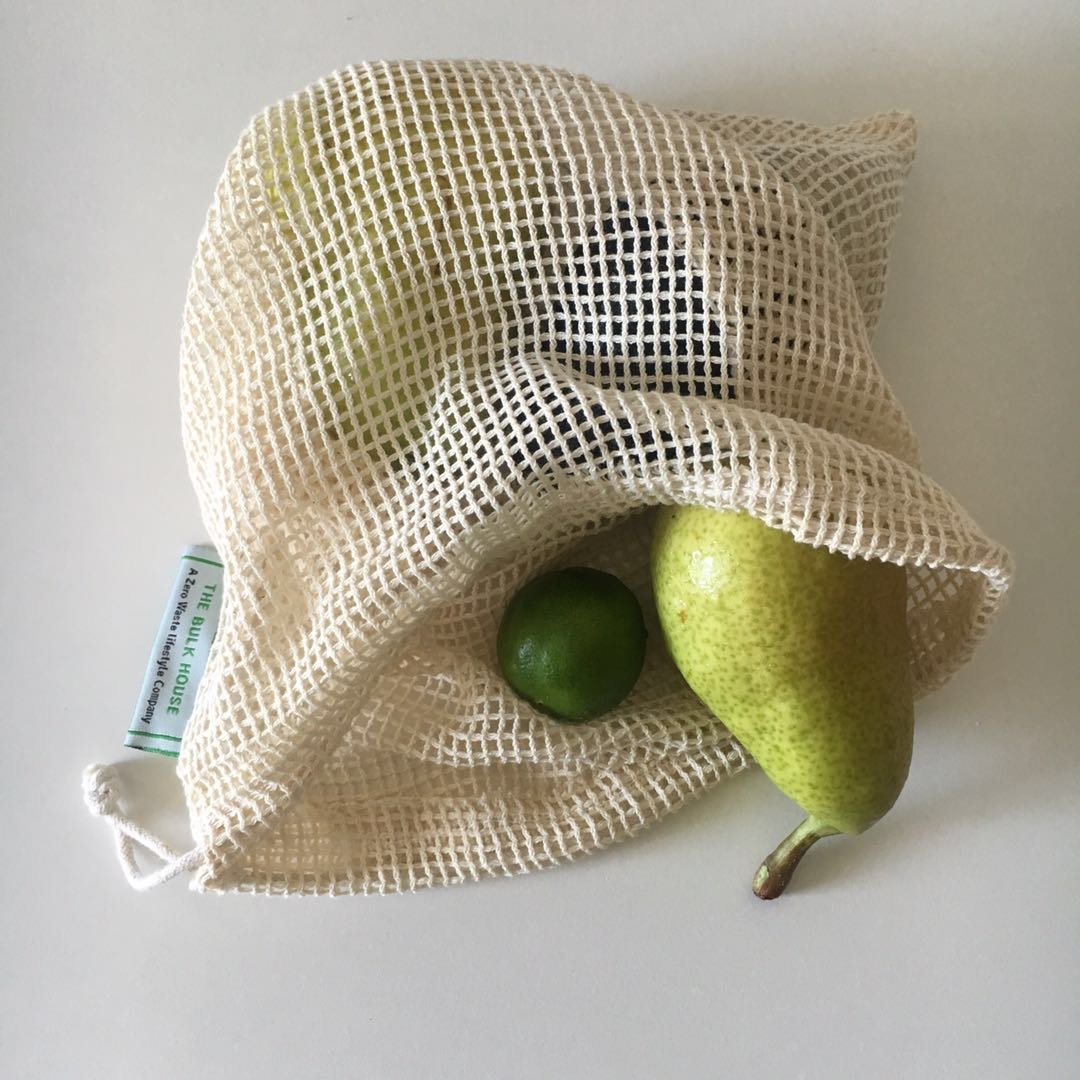
Carrie and her Bulk House staff sell reusable products like organic cotton bags to help Beijingers cut down on plastic bags and other waste
4. Repair. We’ve created a small community of people sharing leads on where you can get things fixed easily and cheaply in Beijing.
5. Recycle. Currently, we don’t do much in regards to recycling. Our message here is: “The aim is to eventually recycle less as recycling is no longer the answer.” For now, please keep recycling! Top tip: gather up all your recycling each week and hand it to one of Beijing’s community recycling supervisors (收废品的师傅).
6. Rot. We host composting workshops and talks. The Bulk House has conducted six to date. You can also join our WeChat community for tips and tricks on how to compost in your apartment block or community.
So far, I feel The Bulk House is at least doing its little part at genuinely trying to make our society a better place.
What challenges have you faced and what progress have you made?
Right off the bat, the challenges have included: having a small team and no money [laughs]. But I guess that’s the same with all new startups. The real challenge though is focus. What can and should we be focusing on right now to make the biggest difference and the best impact on society as a whole? Zero waste is for sure a big idea, and to make a difference The Bulk House must aim to influence the way we currently consume and dispose of things in our everyday lives.
So how do you reach that aim?
Right now our focus is on single-use items, mainly plastic objects. We think this is the best thing to focus on now, as these are things people see and touch every day of their lives. If someone reads an article, or attends an event or watches a documentary about zero waste and more specifically about single-use items, the next time they hold one or use one they are going to think about its impact. Before I started a zero-waste lifestyle, a plastic bag was a plastic bag. Now, I think about the consequences of where that bag came from and where the bag will end up.
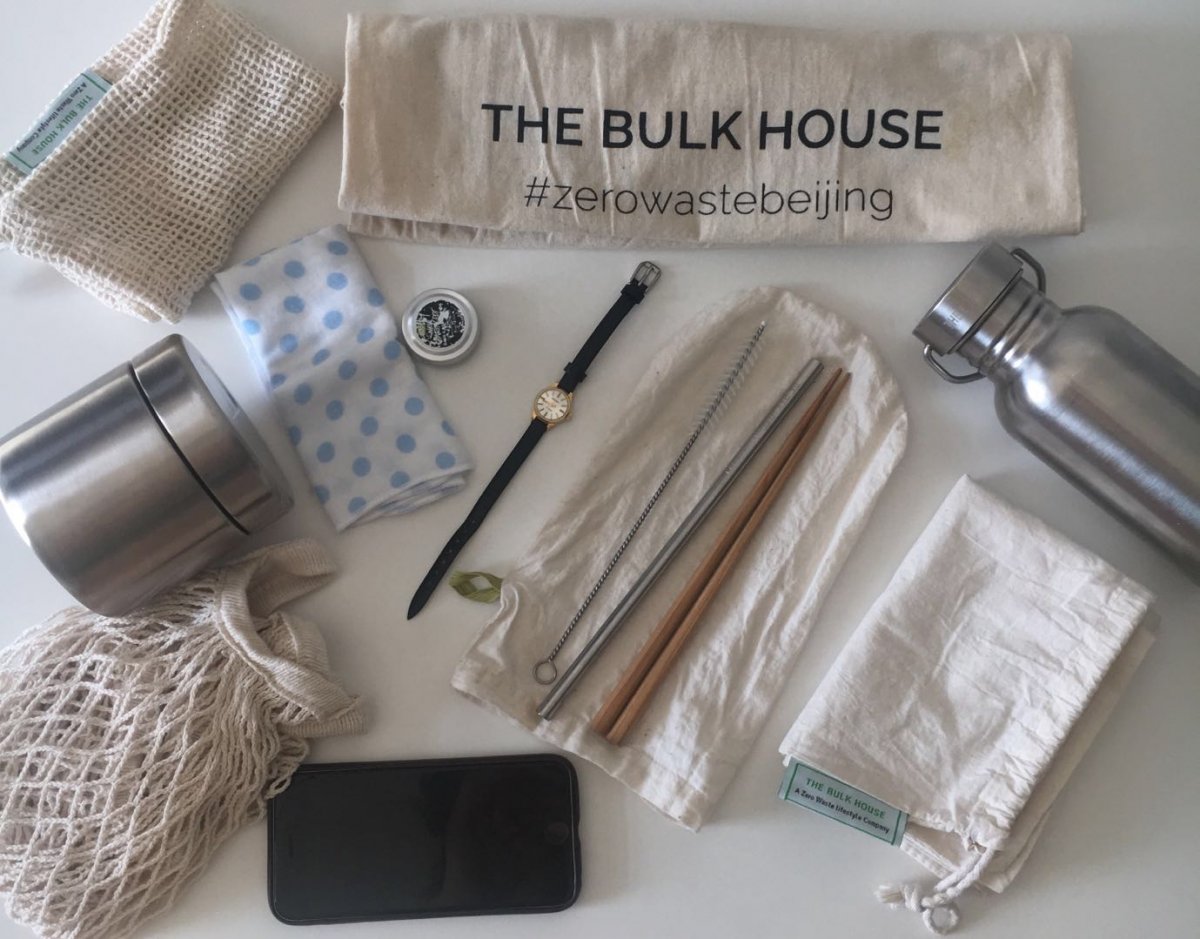
Some of The Bulk House’s products
Tell us about Thursday’s event, and how it will be beneficial to attendees.
The event is a talk with a Q&A session from Bea Johnson, arguably the founder of the zero waste movement. She blew many minds when she revealed that she lives a very happy, normal, and active lifestyle whilst only producing one small jar of trash per year, and that’s one small jar for four people: herself, her husband, and their two children.
Magicians amaze us with tricks, but once you see how they do the trick you think to yourself “Oh, like that? I can do that.” The same thing applies to zero waste, and Bea has turned what appears to be an amazing into something that is very achievable for us all.
The event will be beneficial to attendees because it will help inspire you to be part of a global movement trying to make our planet a more beautiful place to live Also, you’ll learn how some small steps in your life can make a huge difference and move one step closer to a zero-waste lifestyle.
Tell us more about why it is crucial to promote waste reduction here in China, given the country’s environmental issues of over the years.
Well, exactly for that reason, China has a number of environmental issues and that is because of the rapidly growing economy and population (this goes without saying). China is definitely working hard to change this, no doubt about it, but as China grows, the consumer economy is still booming! China’s 1.4 billion people economy will overtake the US as world’s largest economy before 2030. We have to be working hard right now to promote waste production in a place where consumerism is moving at a rate the world has never experienced before.
Pollution exists for a number of reasons. One reason is due to over-consumption and another is improper disposing of things, this means allowing things we consume to become trash. An item only becomes trash if we decide it is trash. For example: 25 percent of all current landfill mass could have been composted, so if we can understand that food waste doesn’t need to go into the rubbish bin but instead into a food waste bin to be composted, we realize that the “trash” we are throwing away is in fact the ingredients for an environmentally friendly product: nutrient-rich soil. By taking nitrogen (food waste) and adding carbon (scrap paper), air, and water, you’re left with nutrient-rich soil.
Waste production is great for so many reasons! It saves us and the government money. For example, think how much money it costs to move trash out of the cities to be incinerated – billions of dollars each year. Every time you buy a product at the supermarket, 15 percent of the cost comes from the packaging; reduce or remove the packaging and we will all save money. Waste production creates more jobs. Enacting waste production into our everyday lives educates our children so that they can look towards a better future, makes our cities a more beautiful place to live, and last but not least, it leaves us with a greener planet!
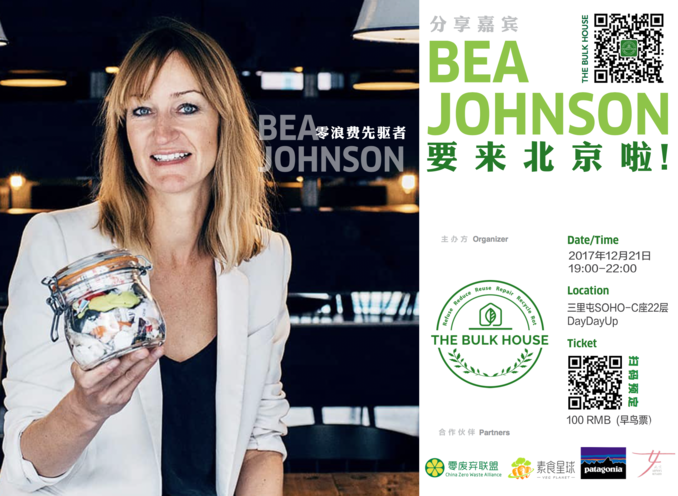
Bea Johnson will appear in Beijing at Day Day Up in Sanlitun Soho, courtesy of The Bulk House, on Dec 21. To register, click here.
More stories by this author here.
Email: kylemullin@truerun.com
Twitter: @MulKyle
Instagram: mullin.kyle
Photos: eco-boost.co, The Bulk House

